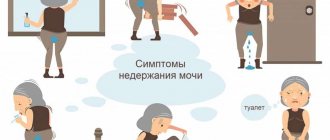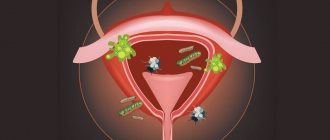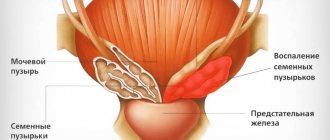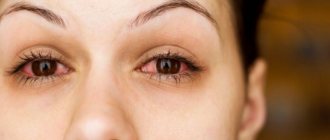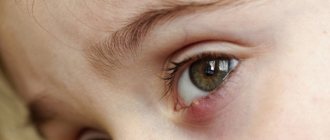Pain when urinating, constant pressure on the bladder, and sometimes even hematuria are the most common symptoms of acute cystitis. It affects more than 150 million people worldwide every year.
Although cystitis most often occurs in pregnant and postmenopausal women, men and young women are also susceptible to the disease. It is important to note that women taking hormonal contraceptives are constantly at risk.
Acute cystitis is a painful condition in itself and should not be underestimated.
In this article you will learn about the symptoms of acute cystitis, the main causes, treatment methods and possible complications of the pathology.
Symptoms and treatment of cystitis in women
The most common causative agent of cystitis is Escherichia coli. A provoking factor in the occurrence of the disease can be wearing synthetic underwear, thongs, as well as poor hygiene.
Cystitis can occur due to tissue injury during defloration or frequent sexual intercourse. Cystitis also develops against the background of sexually transmitted infections, which should also be taken into account when choosing therapy.
Many doctors consider cystitis to be a female disease; about 80% of cases are diagnosed in this category of patients. The list of medications that are prescribed to women for inflammatory diseases of the bladder is quite long. You can find a lot of conflicting reviews on them, especially on online forums. Therefore, you should not look for a remedy on your own, because it is easy to get confused in the variety of drugs. It is best to contact a specialist.
The choice of therapy for chronic cystitis in women should include many nuances. The nature of the pathology, the causative agent of the infection, and the involvement of other organs of the genitourinary system in the process are taken into account.
In their work, doctors use the following classification:
- According to the prevalence of inflammation in the walls of the bladder - with damage to the mucous, submucosal, muscle layers
- According to the nature of the course - chronic or acute cystitis
- According to the characteristics of morphological changes: cystic, catarrhal, ulcerative, granulomatous, hemorrhagic, papillomatous.
- By the nature of the pathogen: bacterial, fungal, viral, protozoal (caused by chlamydia)
It is impossible to independently determine all the features of the process, as well as to choose a drug.
To avoid getting sick again - prevention of cystitis
Acute cystitis is one of the diseases that can be prevented through hygiene - not only intimate, but also in everyday life.
This means that taking care to avoid getting cystitis again can also have a very positive effect on your well-being.
Among the things you should do to avoid getting sick:
- drink plenty of fluids (the recommended minimum for an adult is at least 1.5 liters per day);
- enriching the diet with foods rich in vitamin C (citrus fruits, cranberries, etc.) - they help acidify urine, thereby blocking the growth of bacteria that cause cystitis;
- taking care of intimate hygiene;
- regular urination – also before bedtime and after sexual intercourse;
- proper care of the genital area - you need to wipe the perineum from front to back, including after washing - this helps prevent the movement of bacteria located around the anus to the opening of the urethra;
- wearing comfortable, tight-fitting underwear and clothing (made from natural materials).
Sometimes prevention can be extended with the help of various medications prescribed by your doctor. Among them, it is worth mentioning preparations with estrogen (for postmenopausal women) and vaginal preparations with lactic acid bacteria.
ONLINE REGISTRATION at the DIANA clinic
You can sign up by calling the toll-free phone number 8-800-707-15-60 or filling out the contact form. In this case, we will contact you ourselves.
If you find an error, please select a piece of text and press Ctrl+Enter
Cystitis in women is manifested by the following symptoms:
- Frequent urination with a small volume of urine
- Sharp pain, burning sensation when the bladder empties
- Feeling of a full bladder, even if it is completely empty
- Low-grade fever
- Change in the color of urine, the appearance of mucus and streaks of blood in it
For first aid and treatment, women should contact a urologist. To make a correct diagnosis, exclude other pathologies and choose appropriate therapy, the doctor prescribes a series of examinations. These include:
- General urine analysis
- Analysis according to Nechiporenko (you need to give an average portion of morning urine)
- Ultrasound of the bladder
- Cystoscopy if necessary.
Before starting treatment, a woman with cystitis should be examined by a gynecologist. This will help exclude or confirm sexually transmitted infections as the cause of the disease. The gynecologist takes smears from the vagina and cervical canal and sends them for examination to the laboratory.
After receiving the results of all tests and examinations, the urologist prescribes therapy. Cystitis in women can be treated at home, but the doctor must explain exactly how to take medications, what diet and regimen to follow. In addition to medications for cystitis (after the symptoms disappear), physiotherapy and bladder instillations can be used. You can quickly cure cystitis at home with tablets only in mild cases. It is important to correctly follow all instructions, follow the treatment regimen and all recommendations.
Factors that provoke the appearance of cystitis:
- Stones in the bladder
- Acute and chronic pyelonephritis
- Bladder diverticula with signs of urinary stagnation
- Pregnancy (due to hormonal changes in the woman’s body, the flora in the vagina changes and immune defense decreases)
- Diabetes mellitus, oncology, allergic diseases (cystitis is provoked by taking medications that affect the immune system, altered composition of urine)
- Surgeries and manipulations on the bladder, endoscopic examinations (mucous membranes are injured)
- Menopause (decrease in estrogen causes degenerative processes in the genitals and bladder).
When pain occurs when urinating: symptoms of acute cystitis
Symptoms of acute cystitis include:
- frequent urination (so-called pollakiuria), most often in small quantities;
- constant pressure on the bladder even after urination;
- unpleasant odor of urine;
- dark color and low clarity of urine;
- pain around the bladder (or suprapubic area) at the end of urination;
- burning in the urethra;
- hematuria (i.e. blood in the urine);
- pain in the lumbar region;
- high body temperature (low-grade fever or fever);
- weakness, loss of appetite and irritability
- in children, occasional daytime urinary incontinence and vomiting are possible.
Pain in the lumbar region
These symptoms suggest that there is a problem with the bladder. But it’s worth seeing a doctor not only because each of these symptoms is annoying and can significantly reduce the quality of life, but because timely diagnosis and treatment are important for a quick recovery from the disease and prevention of complications.
The adjective “acute” is used to distinguish this type of disease from asymptomatic and recurrent forms of cystitis. Interestingly, this condition is also known as “bladder cold.” This occurs because the body is weakened by a cold or hypothermia, and therefore it is easier for bacteria to infect the bladder.
Symptoms of cystitis in men and principles of therapy
Cystitis does not occur as often in men as in women. The disease is most common among representatives of the stronger sex after 45 years of age. The signs of cystitis in men and women are almost the same.
The main causes of bladder inflammation in men:
- Kidney stones
- Poor hygiene
- Chronic sexually transmitted infections
- Urinary stricture
- Decreased immunity
What actions should be taken in case of acute cystitis? A sick man should definitely consult a urologist. It is this specialist who diagnoses and treats cystitis in men. For treatment, antibiotics, antispasmodics, herbal preparations, painkillers are used, and in the final stage - physiotherapy.
Home Remedies for Cystitis: Helpful and Pain Relieving
There is no shortage of home remedies for cystitis. But it is important to understand that although such recipes are passed down from generation to generation, they do not replace consulting a doctor and taking medications. But as a concomitant treatment, many of these methods help to significantly alleviate the course of the disease and bring relief both before a visit to the doctor and during treatment.
Traditional recipes for relieving symptoms of cystitis:
- Drink plenty of fluids (helps remove bacteria from the bladder - at least 1.5 liters per day);
- Taking cranberry-based medications, drinking juices, fruits - they have a diuretic effect, which additionally promotes detoxification of the body. Substances contained in cranberries block the adhesion of bacteria from the colon to the mucous membrane of the urinary tract;
- Warm compresses on the abdomen - help relax muscles and reduce discomfort (a heating pad or electric blanket);
- Hot bath - how a heating pad helps relieve symptoms;
- Herbal baths with antiseptic properties, such as chamomile, horsetail or sage;
- Until the end of treatment - cessation of sexual activity.
Drink plenty of fluids
Drugs for the treatment of cystitis
Antibiotics
Prescribing antibiotics is an important step in the treatment of cystitis. Without their use, an acute disease very often becomes chronic. The doctor must decide which antibacterial drugs for cystitis in women and men should be taken. The list of antibiotics prescribed for cystitis is now very large.
Antibiotics are also used for other diseases of the urinary system (pyelonephritis, urethritis, etc.). It is important to know that antibiotic tablets have a number of side effects. These drugs always have one or another negative effect on the body. Most often, side effects are detected with antibiotics with a broad spectrum of action. The list of such drugs used to treat cystitis is quite large. Ideally, before starting therapy, the sensitivity of the bacterial flora to the antibiotic should be determined. Then the doctor will be able to choose from the entire list the most effective drug in a particular situation. The tablets will quickly relieve a woman of the symptoms of cystitis, and side effects will be minimal or will not have time to develop at all.
If cystitis continues for a long time, granulations have formed in the bladder, the doctor may prescribe a course of collargol instillations. After completion of treatment, repeat urine culture and general analysis are done to monitor the effectiveness of treatment.
For cystitis, antibiotics from different groups are used:
- Tetracyclines (Doxycycline, Minocycline, Tetracycline)
- Macrolides (Azithromycin or Sumamed, Monomycin, etc.)
- Cephalosporins (Cefixime, Cefpodoxime)
- Semi-synthetic penicillins (Amoxicillin, Amoxiclav (amoxicillin with clavulanic acid)
Popular antibacterial agents that doctors often prescribe for cystitis:
Monural
An antibacterial drug whose active substance is called fosfomycin, a derivative of phosphonic acid. The medicine is a powerful uroantiseptic. Produced in the form of powder, granules and suspension. Often prescribed to patients with acute cystitis. Effective if the disease occurs with signs of hematuria. In chronic forms it does not give good results.
Price from 350 rubles.
Nolitsin
A relatively inexpensive antibacterial drug in the form of tablets with a broad spectrum of action from the group of fluoroquinolones. The active ingredient is norfloxacin, analogues are Norbactin, Normax. Most microorganisms that cause cystitis in women are sensitive to the drug. Therefore, in acute forms, a cure is quickly observed.
Fluoroquinolones are reserve drugs; they are prescribed when treatment with other drugs for several days has not brought any effect. In addition to Norfloxacin, the group of fluoroquinolones includes Ciprofloxacin, Levofloxacin, Ofloxacin, Gatifloxacin.
Pills. Normax costs from 150 rubles, Norbactin – from 130 rubles, the price of Ciprofloxacin – from 300 rubles.
The doctor determines which pills to prescribe to a woman for cystitis. At the same time, he can prescribe herbal preparations.
Nitroxoline
The product is also known as 5NOK, in which Nitroxoline is the active ingredient. It belongs to the group of hydroxyquinolines. Nitroxoline is prescribed for urinary tract infections - urethritis, pyelonephritis, cystitis, epididymitis.
Only a specialist determines the dose and frequency of taking medications for a particular pathology. Most often, nitroxoline is prescribed for 10 days; you need to drink it 3-4 times a day.
The price of tablets is from 70 rubles.
Palin
Palin is an antibacterial drug with uroseptic properties of the quinolone series. Palin is effective for urinary tract infections caused by flora sensitive to pipemidic acid.
Instructions for use recommend drinking the medicine twice a day for 10 days.
Palin price - from 300 rubles.
Furagin
An antibacterial drug from a number of nitrofurans, an analogue is Furamag (its cost is 400 rubles). Used for inflammatory diseases of the urinary tract. Prescribed both for empirical therapy and after culture to determine the sensitivity of bacteria to furagin.
The effect of taking it comes quite quickly. Furagin is prescribed 0.1–0.2 g 2-3 times a day, the course of therapy is a week or more. You can repeat the medication after 10 days.
Furagin costs from 280 rubles.
Nevigramon
Another antibacterial agent for the treatment of diseases of the genitourinary system, including cystitis. The active substance of the drug is nalidixic acid, it is active against many bacteria.
Symptoms of cystitis are relieved after a week's course, with a dosage of 1 g of medication, taken 4 times a day.
Nevigramon price from 3300 rubles.
Rulid
Antibiotic from the group of macrolides, semi-synthetic origin. Rulid has a wide spectrum of action, effective against many urogenital infections. You can drink it only as prescribed by a doctor.
Take Rulid for the treatment of cystitis 150 mg twice a day.
The price of the medicine is from 1100 rubles.
Furadonin
An antibacterial product with an affordable price. It contains nitrofuran. Furadonin is used for various infections of the urinary system and bladder of a bacterial nature.
The frequency of administration and dose depend on each specific situation. Most often, doctors recommend drinking it 3-4 times a day for 8 days.
Another drug from the nitrofuran group is Furacilin, it is also often used for cystitis. This is an external remedy used for washing as an antiseptic.
The price of furatsilin is from 10 rubles.
Streptocide
The drug streptocide is an antibacterial agent with a bacteriostatic effect. E. coli, gonococci, streptococci, meningococci, etc. are sensitive to it. Take orally, 4-6 times a day.
Price from 40 rubles.
Levomycetin
A broad-spectrum antibiotic, Levomycetin is effective against many bacteria. It is prescribed for cystitis, one tablet 3-4 times a day, for a course of therapy of at least a week.
Price - from 60 rubles.
Various types of cystitis
Like other diseases, cystitis also has many varieties. Each of them has its own classification and slightly different course.
The group of diseases associated with cystitis (N30) includes:
- Acute cystitis (discussed in this text);
- Uncomplicated acute inflammation of the urinary tract (acute cystitis and urethritis);
- Interstitial cystitis (chronic) – associated with “painful bladder syndrome.” Treatment for this type of disease may not bring the expected results, and symptoms may return for a long time. During the treatment process, additional tests are also necessary, for example, ultrasound of the urinary system, x-ray or tomography;
- Cystitis;
- Chronic cystitis.
When talking about bladder and urinary tract infections, it is worth mentioning asymptomatic bacteriuria. This is the mildest clinical form of urinary tract infection.
The degree of effectiveness of drugs against cystitis
Treatment of cystitis is complicated by the fact that over time, pathogens become resistant to many antibacterial drugs. Most often, this situation occurs during repeated courses, hospital infections (introduction of a pathogen during examination, surgery). Resistance can develop during therapy with Ampicillin (E. coli is not very sensitive to it), Furadonin, Furagin, Biseptol, Cephalexin, Cefradin. That is why it is so important before taking medications to consult a doctor who knows not only the symptoms and characteristics of cystitis, but also knows the properties of antibiotics. It is also important to adhere to the recommended course, dose and frequency of antibiotics.
In addition to etiotropic therapy, in the treatment of cystitis, herbal-based drugs or herbal infusions, antispasmodics, and, if necessary, immunostimulants (Viferon, etc.) are prescribed. Viferon suppositories contain α-interferon, which stimulates the immune system and regulates its functioning. Only a doctor can decide which immunomodulators to prescribe, because each of them has its own mechanism of action and indications.
Herbal remedies
Herbal remedies and herbal preparations are often used to treat genitourinary infections. They should be included in complex treatment to improve results. In mild cases, with minimal symptoms, cystitis can be cured only with the help of herbal medicine. In complex treatment, in addition to herbal preparations, other agents are used - antibiotics, antispasmodics, non-steroidal anti-inflammatory drugs.
Cyston
A herbal medicine containing more than a dozen different herbal extracts.
It has diuretic, anti-inflammatory, antibacterial properties. With long-term use of Cystone, the manifestations of the inflammatory process in the bladder and other organs of the urinary system are significantly reduced.
Cyston enhances the effect of antibiotics when taken simultaneously with them. For urolithiasis, this medicine can help dissolve stones.
Cyston price from 450 rubles.
Lingonberry leaves
Lingonberry leaves relieve inflammation, promote diuresis, and have astringent and antibacterial properties. Particularly effective in the complex treatment of infections caused by Staphylococcus aureus.
Lingonberry leaves are used for cystitis, pyelonephritis, nephropathy in women bearing a child, sexually transmitted infections (gonorrhea), colds, etc. The plant enhances the effect of antibacterial drugs and has a positive effect on the immune system.
Tea is prepared from lingonberry leaves; it is best to buy the dried mixture at the pharmacy.
Price - from 40 rubles.
Cranberry and the drug Monurel
For many diseases of the kidneys and urinary tract, including cystitis, doctors advise drinking cranberry juice. It is easy to prepare at home from fresh berries. Cranberry is one of the components of herbal kidney teas; it is also used in folk medicine. Has antimicrobial, diuretic properties. It is sometimes called a natural antibiotic. If you drink 300 ml of cranberry juice daily, the frequency of repeated episodes of cystitis is significantly reduced.
With the help of cranberries, you can alleviate cystitis and increase the chance of a full recovery. The berries contain tannins, which prevent E. coli from attaching to the mucous membrane of the bladder walls. As a result, the number of relapses decreases, and antibiotics kill bacteria more effectively.
Cranberry extract is included in Monurel tablets. It is prescribed both during exacerbation and during remission. The best treatment results are observed with long-term use of the drug.
Monurel price from 500 rubles.
Uroprofit capsules have a similar composition . They also contain bearberry leaf extract, horsetail, and ascorbic acid (vitamin C). The product is registered as a dietary supplement. It is taken one capsule twice a day, or 2 capsules once a day.
Canephron
The herbal preparation Canephron contains rosemary, lovage and centaury. Available in the form of a solution or dragee.
Canephron, when taken regularly, reduces the pain characteristic of cystitis, reduces the likelihood of a chronic disease, and prevents exacerbations. The medicine combines well with antibiotics and is well tolerated.
The cost of the drug is from 400 rubles.
Phytolysin
Phytolysin is a green paste. It is a hydroalcoholic extract of 9 herbs, also includes sage, pine and orange oil. It has diuretic, antispasmodic, anti-inflammatory properties. Phytolysin not only effectively treats cystitis, but also helps remove sand and stones from the kidneys.
Fitolysin paste is intended for oral administration. A teaspoon is dissolved in a glass of warm water and drunk at one time. The course of therapy is two weeks or more.
Price - from 300 rubles.
Urolesan
Herbal preparation of hop cones, wild carrot extract, oregano, peppermint leaves, fir oil. Urolesan is a urological antiseptic, has a positive effect on diuresis, relieves spasms, and promotes the excretion of bile.
The course of therapy is 1-4 weeks, the dose is determined by the attending physician.
Price - from 250 rubles.
Spilled
A combined preparation of plant origin, with a positive effect on the bladder and urinary system. Prolit has proven itself in the treatment and prevention of kidney stones. Uroseptic makes antibiotic therapy more effective.
Prolit is registered as a dietary supplement. Prescribed in doses of 1 to 5 capsules three times a day.
Price – from 500 rubles.
Antispasmodics
There are a large number of drugs with antispasmodic effects on the market, so the choice of the appropriate drug is up to the doctor.
The best and universally recognized medicine from this group is No-shpa . The active component of the drug, Drotaverine , is an isoquinoline derivative. Refers to myotropic antispasmodics, acts on smooth muscles. As a result, the walls of the internal organs relax, the spasm is relieved, and the pain disappears. Antispasmodics do not affect the cause of cystitis, they only relieve symptoms. Therefore, it is impossible to cure the disease with their help.
Drotaverine and other antispasmodics have side effects, they cause lethargy, drowsiness, and dizziness.
Drotaverine hydrochloride
A drug with the same properties and active ingredients as No-shpa. Only Drotaverine is a non-proprietary chemical name, and No-shpa is a brand name.
The mechanism of action of Drotaverine hydrochloride is the same as that of No-shpa - relaxation of smooth muscles and relieving spasms. The medicine eliminates pain within thirty minutes after administration. However, it does not have a negative effect on the nervous system.
The price of Drotaverine is from 70 rubles.
No-shpa costs from 80 rubles.
Nonsteroidal anti-inflammatory drugs
For severe pain that cystitis can cause, NSAIDs are prescribed. Medicines have an anti-inflammatory and analgesic effect, reduce tissue swelling and body temperature. You should consult your doctor about the duration of the NSAID course. They have a rather gentle effect on the body, are well tolerated by patients, but have side effects with long-term use.
Nonsteroidal anti-inflammatory drugs are sold in pharmacies without prescriptions and can be taken at home. But if abused, they can have a negative effect on the kidneys, liver, and reduce blood clotting, causing bleeding. NSAIDs are contraindicated in pregnant women.
Ibuprofen
An inexpensive medicine that can be taken by both adults and children. Relieves inflammation, pain, effectively reduces temperature. Ibuprofen has a fast effect. Contraindicated in pregnant women; it should be prescribed with caution to children under 6 years of age.
Ibuprofen price from 40 rubles.
Faspik
The drug Faspik is the same ibuprofen, but in a higher concentration.
Other analogs of Ibuprofen are Nurofen, Ibuklin (a combination of ibuprofen with paracetamol). Many people take these medications on their own, without any prescription, and give out “recommendations” on forums. You cannot follow the advice of non-professionals; it is better to consult a doctor.
The price of ibuprofen is from 120 rubles.
Probiotics
Cystitis in women develops not only due to the penetration of pathogenic bacteria into the bladder, but also due to disruption of the microflora in the intestines and vagina. Therefore, doctors often include probiotic drugs in complex therapy. In pharmacies you can see many drugs from this group; they include lactobacilli and bifidobacteria. They normalize the microflora of the intestines and genital organs in women and girls, restoring it after long-term use of antibiotics. The most popular and proven probiotics are Bifiform, Rio Flora Balance, Acipol, Hilak Forte, Rio Flora Immuno and others.
Treatment with folk remedies for cystitis
When undergoing a course of treatment for cystitis with tablets prescribed by a doctor, you can use folk remedies as an auxiliary therapy.
Any treatment for cystitis, both tablets and folk remedies, must be prescribed by a doctor. Even harmless, at first glance, techniques should not be used independently, without consultation. This can only worsen the course of the disease.
There are several traditional methods for treating cystitis that are easy to use at home. At the same time, they have a good effect. Here are the most popular and proven:
- Every day, drink a decoction of dill seeds, which has an analgesic effect and relieves symptoms of inflammation. You can make an infusion of dill by pouring boiling water over the crushed seeds. People with low blood pressure and gallbladder pathologies should not drink dill decoction and infusion.
- Regular millet has a good effect in treating cystitis. To prepare the drink, pour 2 tablespoons of millet into 2 cups of boiled water, then boil for another 5 minutes. Leave the decoction for 5 minutes, drain the water, drink a tablespoon of the decoction every day during the first day of illness, on the second day increase the dose to 3 tablespoons every hour, on the third day drink half a glass every hour. Cystitis can be treated with this remedy for up to 7 days.
- A decoction of chamomile also has a positive effect on cystitis. To prepare it, you need to pour 1 tablespoon of flowers with a glass of boiling water and leave for a quarter of an hour. Drink a third of a glass three times a day, on the eve of meals. Medicinal chamomile is not only a traditional medicine; it is included in many drugs, dietary supplements, and is used in homeopathy.
- Regular parsley effectively treats cystitis. Prepare an infusion from the seeds, pour a teaspoon of crushed seeds into two glasses of cool water. Leave the product for 10 hours. Then throughout the day, drink the infusion in small sips. You can eat parsley seeds without preparing an infusion, only before doing so they must be thoroughly chopped.
- Very good results can be achieved by drinking tea and infusions from lingonberry leaves. To prepare the infusion, you need to pour a tablespoon of lingonberry leaves into a glass of boiling water, leave the product for an hour, and then drink half a glass of it three times a day.
- You can treat cystitis with soda. Dissolve a tablespoon of soda in a liter of boiled water. Drink this solution one tablespoon three times a day. With this product you can wash the perineum and douche the urinary tract, and, if necessary, the vagina.
Cystitis is often treated with homeopathic remedies. They should also be prescribed by a doctor specializing in homeopathy and monitor the therapy process.

